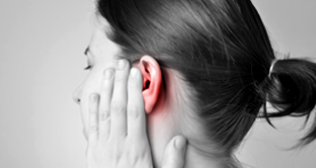
COVID-19 related hair loss and hearing problems: How to deal with the after effects of coronavirus infection
Researchers say COVID-19 can have adverse effects on mental and physical health such as lasting hearing problems, hair loss, etc. Here's what you need to know about the after effects of coronavirus infection.
KEY HIGHLIGHTS
- Researchers say patients recovered from coronavirus infection could have health issues such as lingering hearing problems and hair loss
- The SARS-CoV-2 is a new virus and scientists are still trying to understand how it spreads and causes the illness
- Till date, there is no specific antiviral agent or vaccine against COVID-19, which can cause severe medical conditions and lead to death in some people
New Delhi: Available data suggest that the after effects of the novel coronavirus (SARS-CoV-2) infection can be numerous. Researchers said many patients who have recovered from COVID-19 could experience a range of physical and mental effects - such as lingering hearing problems, hair loss, dizziness, mood disorders, anxiety, etc. Health experts have raised concerns that COVID-19 patients may also suffer lasting damage to their heart, kidneys and liver due to the inflammation and blood clotting the infection causes.
Lasting hearing problems, hair loss as consequences of COVID-19
British researchers have reported that patients recovering from infection with COVID-19 experience lingering hearing problems. For the study published in the International Journal of Audiology, 120 UK patients who had been hospitalised for COVID-19 were analysed in a phone survey, reported WebMD.
The findings showed that 13 per cent patients reported their hearing was worse, whereas eight patients said their hearing had deteriorated and eight said they had tinnitus (ringing in the ears).
“We already know that viruses such as measles, mumps and meningitis can cause hearing loss, and coronaviruses can damage the nerves that carry information to and from the brain,” Kevin Munro, a researcher and professor of audiology at the University of Manchester, said.
“It is possible, in theory, that COVID-19 could cause problems with parts of the auditory system including the middle ear or cochlea,” he said in a university news release.
According to Munro, conditions like auditory neuropathy, a hearing problem in which the cochlea is functioning but transmission along the auditory nerve to the brain is impaired, could make it hard to hear over background noise. Auditory neuropathy is also linked to Guillain-Barre syndrome, a condition in which the immune system attacks the nerves, which has been linked with COVID-19.
The researchers, however, noted that more work is required to exactly understand how the SARS-CoV-2 virus could affect hearing.
Similarly, various dermatologists have reported seeing COVID-19 patients having hair loss, particularly telogen effluvium (TE), a form of temporary hair loss, months after they recovered from the disease. Doctors believe hair loss may not be directly triggered by COVID-19, but may be a consequence of a shock to the body caused by a high fever and other symptoms.
There are several factors that can cause hair loss - such as hormonal imbalances, genetics, age, stress, other health conditions and medication. Telogen effluvium, which can cause hair shedding all over the head, is the most common type of hair loss among COVID-19 patients.
Meanwhile, Shilpi Khetarpal, MD, a dermatologist at Cleveland Clinic, said that the pandemic stress can lead to hair loss even in patients who have not had COVID-19. There are so many pandemic-related stresses.
“There’s financial stress, concern for ill family members, anxiety about contracting the virus, social isolation and changes related to working and schooling from home. We are absolutely seeing hair loss in non-COVID patients that seems related to pandemic stress,” added Dr Khetarpal.
How to deal with COVID-19 related hair loss, hearing problems
The truth is, there’s no overnight remedy, but there are a few things you can do to cope with these side effects.
“Usually the patients with acute telogen effluvium or diffuse hair fall recover in 3-6-9 months, so patience is the key. Usually, all the hair and its density also come back, so one need not worry about going bald or search for wigs online. In certain cases, especially amongst those who delay seeking treatment, the hair fall can become chronic (which is also treatable but can take more time) and in some cases, a genetic predisposition of patterned baldness (of crown area) can get unmasked. So seeking medical aid in time is essential; and it is even more crucial to not believe in heavily promoted miracle ‘overnight growth’ promising potions,” said Dr Smriti Naswa Singh, Consultant Dermatologist, Fortis hospital, Mulund, Mumbai.
So, in nutshell, it’s important to find out the cause of your hair fall, have patience (about 3-6 months) and follow the prescribed course of correction. And here are a few tips that can help stop hair loss:
- Eat plenty of colours in your diet (rainbow diet).
- Exercise regularly.
- Sleep well.
- Reduce mental stress (you can practice breathing exercises or meditation to tackle stress).
- Give yourself physical relaxation days (it's ok not to clean every nook and corner of the house every day!).
- Don’t get overzealous about disinfecting your hair.
- Don’t overzealously comb your hair with fine bristle combs.
- If you are not able to handle the hair fall, seek help from a Dermatologist immediately.
Additionally, the following tips may help you communicate more easily despite hearing problems:
- Let your family and friends know that you’re experiencing hearing problems.
- Turn off background noise (such as TV) that may interfere with conversation.
- Choose a quiet place to talk that’s away from noisy areas.
- You may consider using an assistive listening device to help you hear better while decreasing other noises around you.
- Jot down your symptoms and how long you’ve been experiencing them. Remember to write down questions for your doctor.
Categories
Clear allMeet the doctor

- Dermatology | Dermatology
-
11 Years
-
1500













